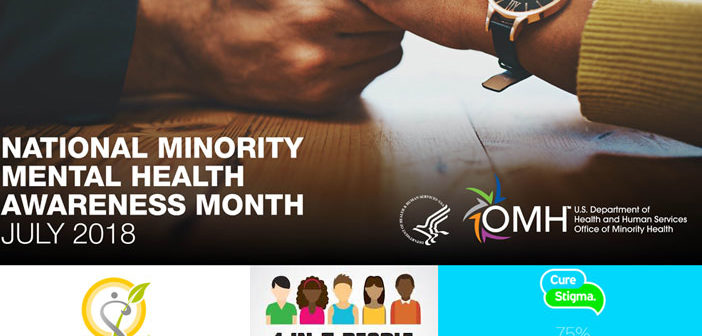The National Minority Mental Health Awareness month was established in 2008 to bring awareness to the plight of millions of Americans who live with a Mental Health Condition.
The 2018 theme for NAMI is #CureStigma NAMI, National Alliance on Mental Illness, is the nation’s largest grassroots mental health organization dedicated to building better lives for the millions of Americans affected by mental illness. NAMI wants to cure the stigma that affects 1 in 5 Americans who deal with mental health conditions on a daily basis.
This stigma creates an environment of shame, fear, and silence and prevents people from seeking help. In order to change that perception, we need to act. Compassion, empathy, and understanding will cure the stigma. And that’s where Sevalife comes in.
Below, we are sharing ways you can get involved along with resources to help you cope.
Visit NAMI.org’s Strength Over Silence: Stories of Courage and Culture to see how difference cultures handle conversations around mental health.
Watch the Facebook Live our own Dr. Susan Stukes and facilitated in a discussion about how the USA and other cultures deal with depression.
Here are some effects on racial and ethnic minority populations. According to the Substance Abuse and Mental Health Services Administration (SAMHSA):
- Over 70% of Black/African American adolescents with a major depressive episode did not receive treatment for their condition.
- Almost 25% of adolescents with a major depressive episode in the last year were Hispanic/Latino.
- Asian American adults were less likely to use mental health services than any other racial/ethnic groups.
- In the past year, nearly 1 in 10 American Indian or Alaska Native young adults had serious thoughts of suicide.
- In the past year, 1 in 7 Native Hawaiian and Pacific Islander adults had a diagnosable mental illness.
Despite advances in health equity, disparities in mental health care persist. The Agency for Healthcare Research and Quality (AHRQ) reports that racial and ethnic minority groups in the U.S. are less likely to have access to mental health services, less likely to use community mental health services, more likely to use emergency departments, and more likely to receive lower quality care. Poor mental health care access and quality contribute to poor mental health outcomes, including suicide, among racial and ethnic minority populations.
Check out the chat from the #MyStoryMyWay campaign. HRC joins Mental Health America’s nationwide #MyStoryMyWay campaign to bring awareness to the ways in which diverse populations talk about mental health.




